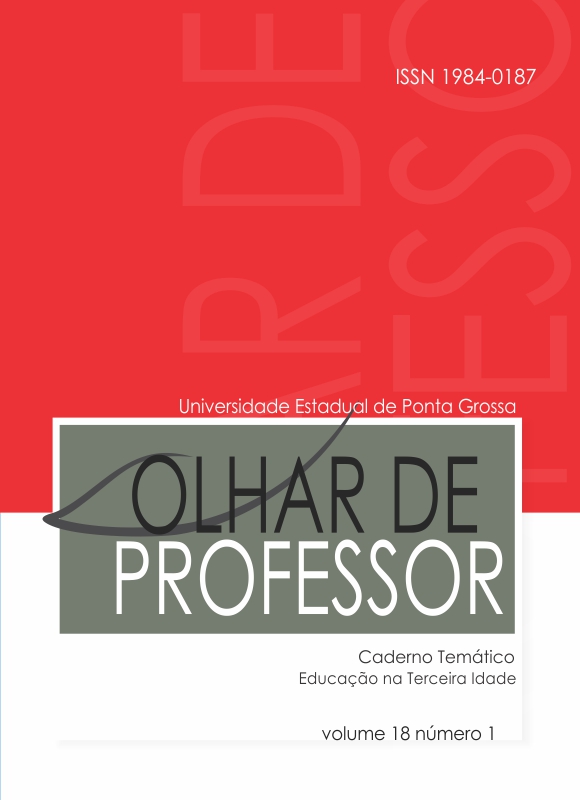MARCAS DA PASSAGEM DO TEMPO: UM RELATO DE EXPERIÊNCIA GERONTO EDUCACIONAL NA UNIVERSIDADE DA TERCEIRA IDADE NO SUL DO BRASIL
Conteúdo do artigo principal
Resumo
ou mais, e estima-se um crescimento para 1 em cada 5 por volta de 2050”. Com esse cenário humano, o envelhecimento da população idosa desafia os espaços sócios educacionais nas Instituições Brasileiras de Ensino Superior- IES. O Núcleo de Estudos da Terceira Idade- NETI, da UFSC, desenvolve um
projeto de extensão, Curso de Formação de Monitores da Ação Gerontológica- CFMAG, que há de duas décadas, no propósito de qualificar pessoas idosas em gerontologia, vem proporcionando novos conhecimentos, estimulando ao voluntariado junto a projetos sociais, e de modo especial, como esse idoso, esta se preparando para a sua velhice. O CFMAG tem sua grade curricular, pautada pela teoria
pedagógica dos Quatro Pilares da Educação, (Delors, 2000). Foi oportunizado, ao grupo de alunos uma reflexão sobre a perspectiva da passagem do tempo das suas vidas e como esse Tempo, refletir e dar significados junto as suas relações sociais e familiares. Assim na perspectiva dos Destinos traçados pelas influências míticas dos Deuses gregos Chronos e Kairós, os alunos foram levados a pensar sobre o curso de suas vidas frente ao envelhecimento. O pensar em envelhecer e o investimento na rotina de suas vidas foram pontos de discussões da experiência aqui relatada.
Downloads
Detalhes do artigo
Autores que publicam nesta revista concordam com os seguintes termos:
a) Os autores mantêm os direitos autorais e concedem à revista o direito de primeira publicação, com o trabalho simultaneamente licenciado sob a Creative Commons Attribution License Atribuição 4.0 Internacional (CC BY 4.0) que permite o compartilhamento do trabalho com reconhecimento da sua autoria e publicação inicial nesta revista.
b) Os autores são autorizados a assinarem contratos adicionais, separadamente, para distribuição não exclusiva da versão publicada nesta revista (por exemplo, em repositórios institucionais ou capítulos de livros), com reconhecimento da sua autoria e publicação inicial nesta revista).
c) Os autores são estimulados a publicar e distribuir a versão onlline do artigo (por exemplo, em repositórios institucionais ou em sua página pessoal), considerando que isso pode gerar alterações produtivas, bem como aumentar o impacto e as citações do artigo publicado.
d) Esta revista proporciona acesso público a todo o seu conteúdo, uma vez que isso permite uma maior visibilidade e alcance dos artigos e resenhas publicados. Para maiores informações sobre esta abordagem, visite Public Knowledge Project, projeto que desenvolveu este sistema para melhorar a qualidade acadêmica e pública da pesquisa, distribuindo o OJS assim como outros softwares de apoio ao sistema de publicação de acesso público a fontes acadêmicas.
e) Os nomes e endereços de e-mail neste site serão usados exclusivamente para os propósitos da revista, não estando disponíveis para outros fins.
______________

Este obra está licenciado com uma Licença Creative Commons Atribuição 4.0 Internacional.





